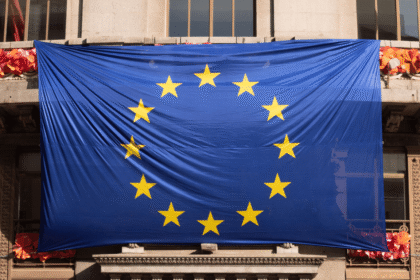
journalist reporter – Kenya
NAKURU – A palpable tension still lingers in the air across Kenya, nearly a year after the streets of Nairobi and other major towns erupted in impassioned protests. What began as a defiant stand against proposed tax increases quickly evolved into a powerful cry for “Justice For Our Nation Kenya,” echoing the deep-seated frustrations of a generation often dismissed, yet increasingly vocal: Gen Z. Today, President William Ruto and his administration find themselves on a challenging journey, attempting to mend fences with a youth demographic that feels betrayed, unheard, and systematically disadvantaged. The question on everyone’s mind, from the bustling markets of Nakuru to the hallowed halls of Parliament, is whether genuine reconciliation is possible, or if the scars of last year’s confrontations run too deep.
The genesis of last year’s unrest was rooted in the contentious Finance Bill, which proposed a raft of new taxes that many young Kenyans argued would disproportionately burden an already struggling populace. But as the protests gained momentum, the issues broadened, encompassing widespread allegations of corruption, concerns over poor governance, and chilling reports of abductions and deaths during the demonstrations. The spontaneous, digitally organized nature of the protests, largely led by Gen Z on platforms like X (formerly Twitter), caught many by surprise, forcing the government to confront a new, unyielding form of activism.
President Ruto, in a notable display of political humility, recently addressed the nation, offering an apology to Gen Z and acknowledging their pain and anger. Speaking at the National Prayer Breakfast in Nairobi, he urged young Kenyans to set aside bitterness and work towards reconciliation, stating, “If there’s anything we did wrong to our children, we lapologise. If we’ve made mistakes, we ask for forgiveness. It’s time to build the relationships that will take our country forward.” This gesture, widely reported in local dailies like The Standard and Daily Nation on May 28, 2025, marks a significant shift in tone from the government, which had previously taken a firm stance against the protestors.
However, for many young Kenyans, words, while a start, are not enough. The distrust runs deep, fueled by persistent economic hardships and a sense of disillusionment with the political elite.
The Weight of High Taxes: A Burden on Young Dreams
One of the most immediate catalysts for the protests was the burden of high taxes. While the government maintains that increased taxation is necessary for national development and debt servicing, many young Kenyans feel they are bearing the brunt of these policies without seeing tangible improvements in their lives.

“It feels like we are being taxed for everything, yet job opportunities are scarce,” says Brenda Akinyi, a 24-year-old university graduate in Nakuru, who participated in the protests. “How are we supposed to build a future when our disposable income is constantly shrinking? Every shilling counts, especially when you are just starting out.” Her sentiment is echoed by numerous young Kenyans who feel that the current tax regime stifles entrepreneurship and limits their ability to save and invest.
Economists and youth advocates have consistently highlighted the detrimental impact of heavy taxation on a youthful population struggling with unemployment. As reported in People Daily on May 29, 2025, analyses of the current tax structure suggest that while essential for revenue, indirect taxes, such as VAT, disproportionately affect lower-income groups, including many young people trying to establish themselves. This creates a perception of unfairness, especially when coupled with concerns about how these revenues are managed.
The government’s challenge lies in demonstrating that tax revenues are being utilized transparently and effectively for projects that directly benefit the youth. Initiatives aimed at providing tax incentives for start-ups or supporting youth-led businesses, as outlined in the proposed Youth Bill 2024, are steps in the right direction. However, the implementation and visible impact of such measures will be crucial in rebuilding trust.
Corruption: The Eroding Foundation of Trust
Perhaps the most potent grievance driving Gen Z’s anger is the pervasive issue of corruption. Stories of misappropriated public funds, grand corruption scandals, and an apparent lack of accountability continue to fuel public outrage, particularly among the youth. For many young Kenyans, corruption is not an abstract concept; it is a direct impediment to their future, diverting resources that could otherwise be invested in education, job creation, and essential public services.

“When we see headlines about billions lost to corruption, while we struggle to find jobs or access quality healthcare, it breaks our spirit,” states Brian Kipkemboi, a 26-year-old activist based in Eldoret. “It’s not just about money; it’s about lost opportunities, about a system that seems rigged against ordinary citizens.”
A recent Afrobarometer report, cited by several local publications on May 23, 2025, indicated that more than four in ten young Kenyans have considered emigrating, with finding jobs and escaping economic hardship – often linked to corruption – being key reasons. This points to a deep-seated despair among the youth, who view corruption as a significant barrier to their upward mobility and a threat to the nation’s progress.
While President Ruto’s administration has made public commitments to fighting corruption, visible prosecutions and convictions of high-profile individuals implicated in corruption scandals are eagerly awaited by the public. Greater transparency in government procurement and financial management, coupled with strengthened anti-corruption institutions, would go a long way in demonstrating genuine commitment and rebuilding the eroded trust with Gen Z.
Poor Governance: A Call for Accountability and Inclusion
Beyond taxes and corruption, the protests also highlighted a broader dissatisfaction with governance. Gen Z is demanding greater accountability from their leaders and a more inclusive approach to policymaking. They feel that decisions are often made without meaningful consultation with the youth, leading to policies that do not adequately address their unique challenges and aspirations.
The government has signaled a willingness to engage more with young people. Cabinet Secretaries have been urged to collaborate with the private sector on youth internship programs, as reported by KNA on May 28, 2025. This move aims to equip young people with practical skills and bridge the gap between education and employment. The Youth Bill 2024, currently under consideration, also seeks to promote holistic youth development, establish mechanisms for participation, and support innovation and entrepreneurship.
However, the efficacy of these initiatives will depend on their implementation and whether they genuinely empower young people. Critics argue that while some youth empowerment centers exist, many are underutilized or lack adequate resources. The challenge for the government is to move beyond tokenistic gestures and create sustainable platforms for genuine youth engagement, where their voices are not just heard, but actively integrated into policy formulation.
The Lingering Shadows: Abductions and Deaths
The most painful and enduring aspect of last year’s protests for many Gen Zs are the reports of abductions and deaths. Accounts from human rights organizations and media reports, including those from Al Jazeera on March 4, 2025, indicate that dozens of government critics and protestors were allegedly abducted, with some still missing. These incidents have created a climate of fear and severely strained the relationship between the youth and law enforcement agencies.
“When people disappear simply for speaking their minds, it sends a chilling message,” says a young student from Kenyatta University, who requested anonymity for fear of reprisal. “It makes you wonder if our right to protest, our freedom of expression, is truly protected.”
Addressing these allegations with transparency and accountability is paramount for any genuine reconciliation. Independent investigations into all reported cases of abductions and deaths, and bringing perpetrators to justice, are crucial steps in rebuilding faith in the rule of law and demonstrating that human rights are protected. Without concrete action on this front, the healing process for many young Kenyans will remain incomplete.
The Path Forward: Building Bridges, Not Walls
President Ruto’s recent apology to Gen Z marks a crucial turning point, signaling a recognition of the government’s need to bridge the divide. However, the path to genuine reconciliation is long and requires sustained effort and tangible action.
For the government, this means:
- Demonstrating Fiscal Responsibility and Transparency: Beyond collecting taxes, the government must clearly and transparently demonstrate how public funds are utilized, especially for projects directly benefiting the youth. Visible projects and accountable financial management are critical.
- Intensifying the Fight Against Corruption: Rhetoric alone is insufficient. Concrete steps, including swift and impartial prosecution of corruption cases, asset recovery, and strengthening oversight institutions, are essential to restore public trust.
- Deepening Youth Engagement and Inclusion: Beyond formal youth bills and internship programs, the government needs to create diverse, accessible, and meaningful platforms for youth participation in decision-making processes. This includes leveraging digital platforms where Gen Z is most active for genuine dialogue, not just information dissemination.
- Ensuring Accountability for Past Grievances: Addressing the allegations of abductions and deaths with independent investigations and bringing perpetrators to justice is non-negotiable for healing and fostering trust in the state’s institutions.
- Focusing on Economic Opportunities: While global economic headwinds are a factor, the government must redouble its efforts to create an enabling environment for job creation, entrepreneurship, and skills development that aligns with market demands. This could include targeted investments in digital infrastructure, innovation hubs, and vocational training that directly address youth unemployment.
For Gen Z, the challenge lies in sustaining their advocacy while also engaging constructively with the government. Their collective action last year proved their power, and maintaining that unity of purpose, even as discussions turn to dialogue, will be key to shaping their nation’s future.
As Nakuru wakes to another ordinary Thursday, the echoes of last year’s protests may have faded from the streets, but the underlying demands for “Justice For Our Nation Kenya” continue to resonate in the hearts and minds of its youth. President Ruto’s administration has initiated a crucial conversation, but the true measure of reconciliation will be in its sustained commitment to addressing the deep-seated grievances that ignited a generation’s powerful cry for change. The future of Kenya, a nation with a vibrant and demanding youth, hinges on this delicate and essential balancing act.













